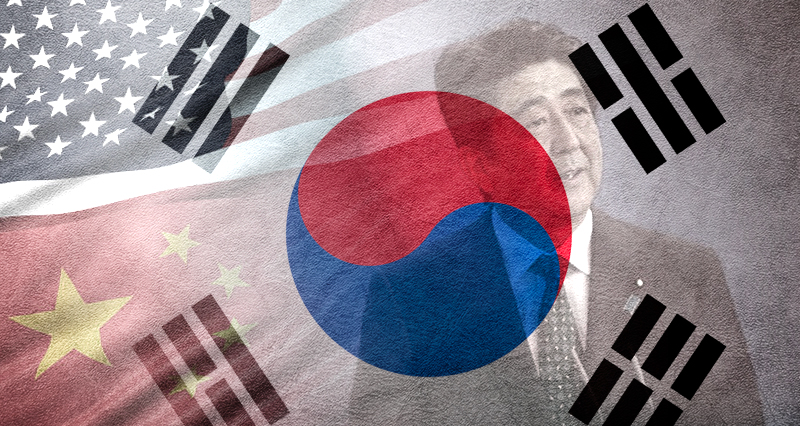By Lee Jaesung *
On July 8, two gunshots resounded in the streets, shocking the world.
Former Japanese Prime Minister Shinzo Abe, at the age of 67, was shot dead during a campaign for support. There are still many unresolved doubts around him, but one thing that everyone can agree on is that an important giant of Japanese diplomacy of the 21st century has fallen.
At the time when a wave of mourning, followed in the Western world, for his death, the reaction of public opinion in neighboring countries was intense, unlike their governments that had formal courtesy.
Former Prime Minister Abe was an absolute supporter of the US Pivot to Asia policy. At a time when most traditional Asian allies of the United States took an ambiguous stance with the rise of China, Japan actively advocated a pro-Western line to strengthen its strategic position as the United States’ core ally, and to justify its normalization and rearmament. Both FOIP and QUAD are the backbone of the US Indo-Pacific strategy targeting China, and it can be seen that Japan is playing a central role as Asian partner in all of these.
At the same time, he did not hesitate to secure a sense of balance and secure the national interest. Within a broad framework, he kept pace with the United States and confronted Russia, while maintaining strategic cooperation with Russia independently at a micro level. For Putin, who was deeply concerned about China’s rapidly expanding influence in the Far East, Japan’s approach was a good opportunity for economic balance. With this cooperation, Japan also tried to contain the rapid close contact between Russia and China in Asia, while maintaining momentum on important agenda items such as the issue of the return of the Kuril Islands occupied by Russia. Japan remained an important Asian partner to Russia until relations dramatically deteriorated due to the crisis in Ukraine.
The relationship between Korea and Japan during Abe’s tenure was a clear example of the dilemma Korea had in its relationship with Japan. With China emerging as a hegemonic power, South Korea had to suppress its historical antipathy toward Japan in order to balance its power. In the end, if the government tolerates historical issues for cooperation with Japan, it will have to face public opposition, and if it appeals to anti-Japanese sentiment, it will be in conflict with the United States, which is ordering solidarity against China. Abe thoroughly understood the dilemma of Korea, and played the role of pressure on Korea’s ‘ambiguous’ stance between China and the United States in Asia on behalf of the United States.
During the period of President Moon Jae-in’s term (2017-2022), cooperation with China and inter-Korean relations improved dramatically. Under Trump’s non-interventionist alliance stance, the relations between the two countries have deteriorated dramatically due to the military confrontation between Korea and Japan (2018), Korea-Japan trade dispute (2019) and Korea’s attempts to abolish the military intelligence agreement ‘GSOMIA'(2019). Prime Minister Abe amplified this conflict and used it as an opportunity to strengthen Japan’s own diplomatic position by contrasting the stances of Korea and Japan in conjunction with the US policy of containment in China and to rally the conservatives who supported him.
Despite the numerous controversies and conflicts with neighboring countries, the elaborate diplomatic adjustment of the Abe administration presented a direction for Japanese diplomacy in the 21st century during his tenure of nearly ten years. As a result, rearmament and Indo-Pacific strategy emerged as central agendas in Japanese politics. Abe’s approach seems to be strategically relevant, even if it may cause moral controversy in the current world where the multipolar order is changing. Today, at a new turning point in world history, his death at such time has a dramatic aspect. However, the route he established will exert a profound influence on Japanese diplomacy for at least the next quarter of a century. His death was a tragic coincidence, but his appearance seemed to be inevitable in a changing Japan.
* Political researcher, South Korea

















Leave a Reply